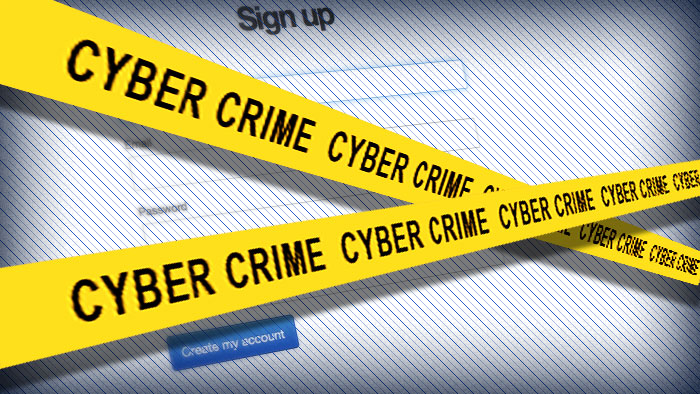According to a spokesperson of the Ministry of IT & Telecom, criticism from some corners on Prevention of Electronic Crimes (PEC) Bill as reported in certain media reports is totally misconceived and based on poor understanding. He added that it was unfortunate that the bill was being criticized while relying on misconceived interpretation of its provisions and relevant facts, as reported by “The News”.
The spokesperson said that in view of the one sided views articulated in the news, it is necessary to put the media debate around the subject bill into context and to help the mainstream media inform general public on this very important subject.
Objection 1: The Bill Was Prepared Behind Closed Doors
First of all, the entire notion that the bill which is a result of years of drafting and consultations across vast strata of stakeholders was prepared behind closed doors needs to be corrected.
After reactivation of work on the Law in 2014 when the current government came into power, there were more than a dozen meetings with Internet Service Providers Association of Pakistan (ISPAK), Pakistan Software Houses Association (PASHA), Global internet platforms, the telecom industry, lawyers and the public in general. Incremental versions of the bill have been regularly made available for the public.
“Original bill placed before the house and ultimately the National Assembly Standing Committee (NASC) was a consensus draft”
The spokesman said government was cognizant of viewpoints of these stakeholders and the original bill placed before the house and ultimately the National Assembly Standing Committee (NASC) was a consensus draft.
As far as the current version of the bill is concerned, it has maintained the spirit of the draft on the advice and suggestions of the legislators in the NASC with a few adjustments meant to align the bill with the National Action Plan (NAP), which is a unanimous action agenda chalked out by political leadership for countering various internal threats to the well being security and integrity of Pakistan and its people.
“The structure of the bill provides for viable prosecution of the culprits while keeping the possibility of abuse of law to a minimum”
Some refinements aimed at bringing the bill in line with existing structure of jurisprudence as well as the global convention on Cybercrimes (The Budapest Convention) were also introduced.
All adjustments have been with full cognizance of the views of these stakeholders with one major consideration that the structure provides for viable prosecution of the culprits while keeping the possibility of abuse of law to a minimum.
With this history of evolution of the draft, the view that the draft was a surprise put together behind closed doors with no consultations is misleading and false.
Objection 2: The Bill Will be Used to Prosecute Innocent People
Contrary to the assertions that the bill leaves room open for tyrannical actions against innocent internet or information system users, there are ample safeguards to prevent misuse.
Just to put the very basic record straight, the offences defined in the PEC bill are not strict liability offences i.e. anything that is done without intention and or with permission of the owner of the information system or data does not constitute an offence.
“The offences defined in the PEC bill are not strict liability offences, law enforcement cannot take action without court orders”
In fact all the offences (except cyber terrorism and offences relating to sexual exploitation including child pornography) are non cognizable i.e. law enforcement agencies cannot take any action against these offences without order of the court issued on complaint of an aggrieved party.
This for large measure is the spirit and the mechanism behind numerous variants of Cyber Electronic Crime Laws enacted by various administrations globally.
Objection 3: The Bill Will Be Used to Block Content
As far as provisions relating to blocking of access to illegal content are concerned, the same has been incorporated strictly in accordance with the Article 19 of the Constitution in order to ensure that no such content is blocked that does not violate the constitution. The concept of selective treatment of content is not alien to even the most liberal of jurisdictions globally.
Access to online content has been restricted in many countries including EU, US, India and Australia keeping in view their peculiar sensitivities.
“The concept of selective treatment of content is not alien to even the most liberal of jurisdictions globally”
Whereas these countries have drafted legislation on the subject in line with their constitutional frameworks, any legislation in Pakistan must comply with among others Article 19 of the constitution.
In fact the language used in the PEC Bill is a verbatim reproduction from the very provision of the constitution.
It has been argued that wording of Article 19 is vague but the superior courts have interpreted Article 19 and any other interpretation given by any forum cannot be sustained in light of these judgments of the courts.
The said provision also provides that the PTA shall formulate rules on the subject to remove any apprehension of arbitrary interpretation.
Already under the existing legal framework, PTA has the power to manage online content and the performance of this function by PTA has been validated by the superior courts from time to time.
It is pertinent to mention that India had provided a similar power to the central government through Information Technology Act 2000.
MOIT is adamant that the bill is a requirement and Pakistan will be left behind if it doesn’t adopt it
The framework for content management provided for in the PEC bill will ensure that action can be taken against websites while also ensuring that free speech is protected as per Article 19 of the Constitution.
Keeping in view the increasing number of complaints received from the general public concerning misuse of personal information and pictures, clauses concerning cyber stalking and protection of personal data have been incorporated in the PEC bill in line with Article 14 of the constitution of Pakistan which guarantees right to life with dignity.
Due treatment of the need for proper subject matter training of both the investigators prosecutors and even the jurors handling cybercrime matters reflects the clear intent of the government to have the process handled professionally judiciously and in a transparent way.
In the end, it must be said that the subject bill is of critical importance in terms of having a structured legal regime for apprehending innumerable and ever increasing number of cyber crimes.
Complete absence of a legal framework to regulate activities in cyberspace is absolutely not a choice for countries that aspire to use technology to raise living standards and to be at par with other modern states. It has led to large number of cyber criminals getting away scot free without availability of rights and remedies to the citizens of Pakistan. Moreover, there is a serious sense of insecurity among the users of electronic networks and even suicides in some cases due to humiliation and loss of dignity at the hands of cyber criminals.
Absence of this law, as is being claimed in various one sided news articles these days, is not because of lack consultation on the law but because of divergence and conglomeration of a wider range of interests with misconceived arguments embedded in protection of freedom of speech and protection of civil liberties.
According to MOIT, mainstream media is being led into controversy through “misinterpretation” and “misquotation” of the provisions of the draft law
The proponents of the debate including the legal experts cited in the media pieces are actually trying to rope in mainstream media into the controversy through misinterpretation and misquotation of the provisions of the draft law.
It is a fact that due consideration was given by the NASC to the on the record views of all cross sections of stakeholders whilst reviewing the bill.
The PEC bill shall enable a safe and secure cyber space that is a requisite for instilling confidence and sense of safety in the users and the progress of our IT industry and E-commerce.
Misplaced criticism will not only be counterproductive to the success of National Action Plan but also leave Pakistan behind in international world where most of countries have already developed cybercrime laws.
We believe it is time now to debunk the unfounded myths and let a balanced logic be provided to the citizens of Pakistan who are being falsely led to believe that they are being subjected to an intrusive set of cyberspace regulations, he concluded.
via TheNews






















bla bla bla bula bulla bull bull bull sheeeeeeeetttt
woah..dats good sheeeeet :D you must understand that. Govt is right, you and we are wrong. Govt is always right and innocent and blah, blah, bla….
پرو انگلش پاکستانی کچھ اردو مین بھی بتاو ۔۔۔ پاگل بنا رکھا ہے
So…. does this mean we will still be able to see nawaz memes on fb?? XD
someone please explain the story above in few sentences.
ProPakistani lost the battle here and all those Imran Khan employees who were commenting like they were being forced to do so!
ProPakistani was one of those who was one-sided, ban this website right now :-)
Where is the rebuttal to specific allegations? This is just a general rant saying that the bill is fair.
nawaz govt has a fetish for everything saudi! thus they like to impose autocratic saudi values on pakistanis
burn the constitution of hypocrisy
It is inaccurate to suggest that the Bill is consistent with the Budapest Convention. Currently no provision (unlike the stakeholder draft Bill) is consistent with and in fact is in violation of the Convention.